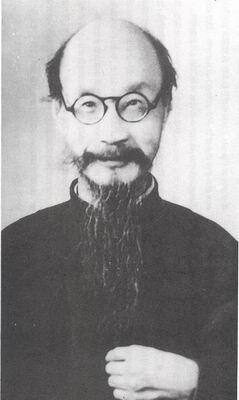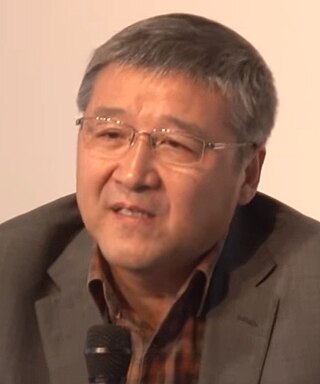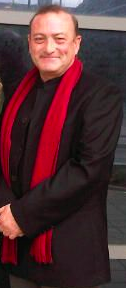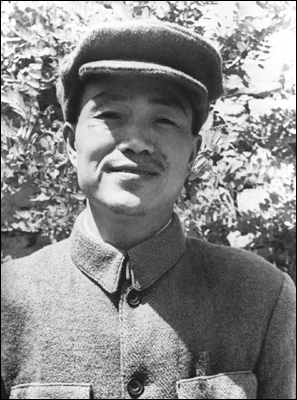
Cambridge University Press is the university press of the University of Cambridge. Granted letters patent by King Henry VIII in 1534, it is the oldest university press in the world. It is also the King's Printer.

Zheng Zhenduo was a Chinese journalist, writer, archaeologist and scholar.

The Red Guards were a mass, student-led, paramilitary social movement mobilized by Chairman Mao Zedong in 1966 until their abolishment in 1968, during the first phase of the Cultural Revolution, which he had instituted.

Liu Yizheng was a Chinese historian, calligrapher, librarian, cultural scholar, educator, and academic leader. He is known for his personal charisma, spirit and eruditeness. In modern Chinese academic field, it is said that the number of famous experts in various fields including in literature, history, geography, philosophy and even natural science he educated and enlighted was the most. Liu Yizheng and Wang Bohang were honorifically called Nanyong Double Pillars during the early period of the Republic of China.

Wang Guowei or Wang Kuo-wei, courtesy name Jing'an (靜安) or Boyu (伯隅), was a Chinese historian and poet. A versatile scholar, he made important contributions to the studies of ancient history, epigraphy, philology, vernacular literature and literary theory.

Roderick Lemonde MacFarquhar was a British China scholar, politician, and journalist.

Wang Hui is a professor in the Department of Chinese Language and Literature, Tsinghua University, Beijing. His researches focus on contemporary Chinese literature and intellectual history. He was the executive editor of the influential magazine Dushu from May 1996 to July 2007. The US magazine Foreign Policy named him as one of the top 100 public intellectuals in the world in May 2008. Wang Hui has been Visiting Professor at Harvard, Edinburgh, Bologna (Italy), Stanford, UCLA, Berkeley, and the University of Washington, among others. In March 2010, he appeared as the keynote speaker at the annual meeting for the Association for Asian Studies.

Gregory B. Lee is an academic, author, and broadcaster. Lee is Founding Professor of Chinese Studies at the University of St Andrews. He was until July 2020, Director of the French research Institute for Transtextual and Transcultural Studies based at Jean Moulin University Lyon 3. Lee was previously Chair Professor of Chinese and Transcultural Studies and Dean of the College of Liberal Arts and Social Sciences at the City University of Hong Kong. From 2007 to 2010 Lee was First Vice-President (Research) of Jean Moulin University Lyon 3. In 2010, Lee was made a Chevalier (Knight) in the French Order of Academic Palms. In 2011, he was elected Fellow of the Hong Kong Academy of the Humanities.

Hu Qiaomu was a Chinese sociologist, Marxist philosopher and politician.
The General Political Department of the People's Liberation Army was the former chief political organ under the Central Military Commission of Chinese Communist Party. It led all political activities in the People's Liberation Army.

Modern Asian Studies is a bimonthly peer-reviewed academic journal in the field of Asian studies, published by Cambridge University Press. The journal was established in 1967 by the Syndics of the University of Cambridge and the Committee of Directors at the Centre of South Asian Studies (CSAS), a joint initiative among SOAS University of London, University of Cambridge, University of Hull, University of Leeds, and University of Sheffield. The journal covers the history, sociology, economics, and culture of modern Asia.

The Sociological Review is a quarterly peer-reviewed academic journal covering all aspects of sociology, including anthropology, criminology, philosophy, education, gender, medicine, and organization. The journal is published by SAGE Publications; before 2017 it was published by Wiley-Blackwell. It is one of the three "main sociology journals in Britain", along with the British Journal of Sociology and Sociology, and the oldest British sociology journal.

Stuart Reynolds Schram was an American physicist, political scientist and sinologist who specialised in the study of modern Chinese politics. He was particularly well known for his works on the life and thought of Mao Zedong.
British Journal of Political Science is a quarterly peer-reviewed academic journal covering all aspects of political science.

Yilin Zhong is a British-Chinese journalist, screenwriter and author. She is the author of seventeen novels, two film screenplays, ten books and many other work including poems and literary reviews. She now lives in London.

Scarlet Memorial: Tales of Cannibalism in Modern China is a book of reportage literature by the Chinese novelist Zheng Yi. Zheng and a group of writers under the joint pseudonym "T. P. Sym" translated and abridged it from the Chinese work 红色 纪念碑 Hongse jinianbei. Zheng uses local government documents, eye-witness accounts and confessions to describe the factional violence and even cannibalism that occurred in the Guangxi Massacre during the Cultural Revolution (1966–1976).
TaoWang is a Chinese–British archaeologist and art historian specialising in early Chinese art. He is also known for his work on early inscriptions on oracle bones and ritual bronzes. He is married to numismatist and translator Helen Wang.
Dafydd J. Fell is a British political scientist who has written extensively on politics of Taiwan. He is a professor in comparative politics and the director of the Center of Taiwan Studies (CTS) at the School of Oriental and African Studies (SOAS), University of London. Fell is the convenor of the MA Taiwan Studies programme of the SOAS. Under his direction, this school’s Taiwan-related courses, conferences and publications on Taiwan increased. He is the book series editor for the Routledge Research on Taiwan Series and an editor of International Journal of Taiwan Studies.
Chung Wai Literary Quarterly is a quarterly Taiwanese peer-reviewed scholarly journal publishing new and established poetries, fiction, academic journals, reviews, translations and non-fiction articles/essays, related to Western literature. Originally founded as a monthly literary magazine by Yen Yuan-shu and Chu Limin in 1972 and named Chung Wai Literary Monthly, the journal aims to encourage and promote critical and emerging approaches to non-local literatures and connect literature with other academic disciplines. It was widely regarded as a pioneering journal on comparative studies between Chinese and foreign literatures and had received numerous awards, including award from the National Central Library. The magnum opus of Taiwanese writer Wang Wen-hsing, Family Catastrophe, was also first published in Chung Wai. In 2007, the journal renamed and restructured as a quarterly and in 2019, the journal was recognized as a Grade I academic journal by the National Science and Technology Council of Taiwan.
International Journal of Taiwan Studies (IJTS) is a hybrid open access biannual peer-reviewed academic journal in English hosting by the Centre of Taiwan Studies, School of Oriental and African Studies (SOAS), University of London. This journal covers all aspects of Taiwan Studies, including social sciences, Taiwanese art, Taiwanese literature, culture of Taiwan, history of Taiwan and humanities, and interdisciplinary topics. It is published by Brill Publishers and cosponsored by Academia Sinica and the European Association of Taiwan Studies. Its Editor-in-Chief is Ming-Yeh Rawnsley. It is established in 2018 and abstracted and indexed by Scopus.














